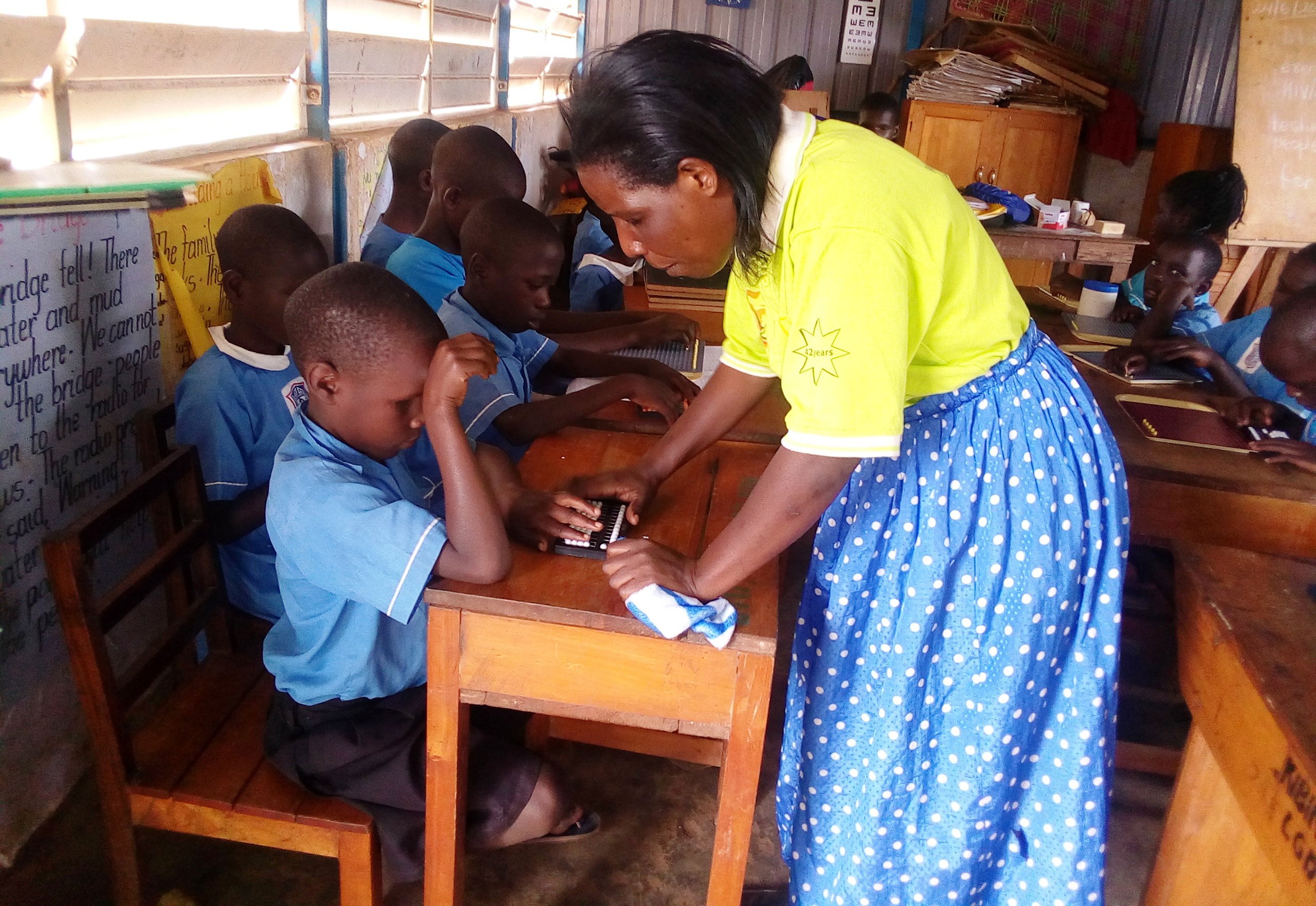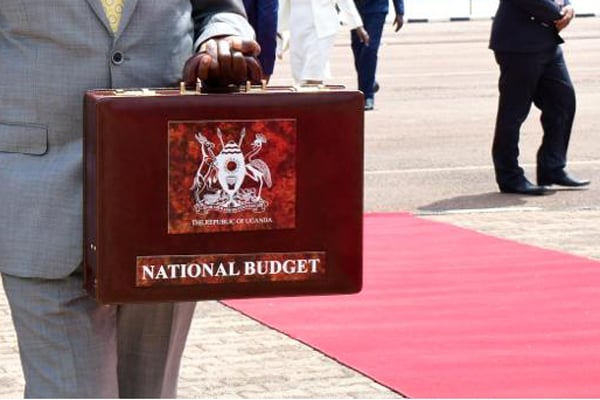Prime
CSOs want more funding to help special needs learners

Ms Ann Florence Nakabuye teaches mathematics to pupils with special needs at Misanvu Demostration School in Bukomansimbi District last year. PHOTO/GERTRUDE MUTYABA
What you need to know:
- Statistics from the Education ministry indicate that financing of special needs education amounted to 0.1 percent of the education budget in the last two financial years.
- Mr Edward Otim, the programmes manager at Sense International, said only five out of nine districts in the greater Masaka Sub-region have recruited education officers with special needs.
Civil society organisations caring for Persons with Disabilities (PwDs) have decried the inadequate funding, saying it has affected the implementation of an inclusive education policy in the country.
According to CSOs, the lack of assistive devices such as braille, large print, tactile books, and audiobooks has excluded many children from school.
Mr Edward Otim, the programmes manager at Sense International, said only five out of nine districts in the greater Masaka Sub-region have recruited education officers with special needs.
“ While inclusive education is considered to be effective in building equitable societies, it remains a pipeline dream in many districts,” he said in an interview on Monday.
According to Mr Otim, inclusive education for PwDs cannot be realised without grassroots implementers and supervisors.
“The slot for education officer for special needs is available in all districts, but whenever we question why they are not recruited, a popular song called lack of wage bill comes about, but our question will always be; why is the wage bill always not enough on issues of PwDs?,” he asked
Mr Richard Musisi, the executive director of the Association of People with Disabilities Living with HIV/Aids in Uganda (APHA-Uganda), said out of 2.5 million children living with disabilities in the country, only 250,000 have access to education.
“The government should make study materials of children with special needs available as well as resources to facilitate the implementation of the inclusive education policy,” he said
The National Council for Disability identified some disabilities among learners, including multiple sclerosis, epilepsy, down syndrome, autism, dyslexia, processing disorder, bipolar, oppositional, defiance disorder, blindness, visual impairment, dystrophy, and deafness.
According to the organisation, many schools cannot manage such disabilities due to a lack of resources.
Statistics from the Ministry of Education indicate that in the financial year 2020/2021 and 2022/2023, the financing of special needs education only amounted to 0.1 percent of the education budget.
Ms Josephine Namayanja, the Masaka District special needs education officer, said they are still stuck with parents who don’t take children with disabilities to school.
“Parents are also frustrating the implementation of inclusive education policy because they deny their children education due to some backward cultural beliefs,” she said.
The Ministry of Education’s commissioner for special needs and inclusive education, Ms Sarah Bugosi Kiboli, acknowledged that there have been delays in the adoption of the inclusive education policy.
However, she said nationwide efforts are being made to hire education officers with knowledge about special needs to facilitate the smooth implementation of the inclusive policy.
“The fact that the education structure now includes education officers for special needs is a big step that we should all appreciate, and slowly we shall reach there,” she said.
Statistics
The Constitution stipulates that public financing for special needs and inclusive education should account for 10 percent of the education budget, but it currently stands at 0.1 percent. Currently, the country is estimated to have about 2.8 million learners with disabilities, but only 50,000 of these are in school because there are not so many specialised schools, according to Ministry of Education statistics. There are only 24 special needs schools in the country and only 126 ordinary schools are inclusive to accommodate special needs learners. There are 7,682 learners with disabilities in primary schools that get support from the government.





